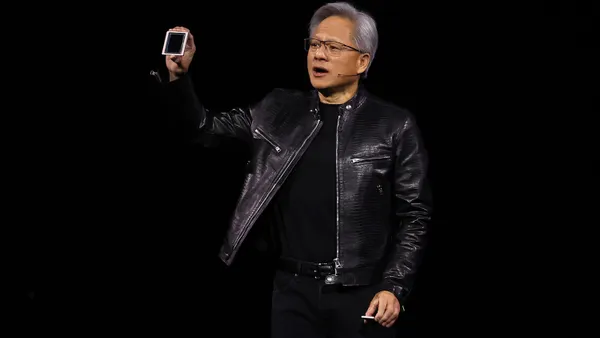Invoices from suppliers all over the globe had the potential to bury World Fuel Services in paper and impact its bottom line.
The company, which brought in $40 billion in revenue last year and sold 21 billion gallons of fuel, manually entered "half a million" invoices, Jeff Smith, EVP and COO of World Fuel Services, told CIO Dive.
Mistakes can creep in any time a business manually enters information and "these are big dollar items," Smith said.
The company turned to Box to automate the process, using robotics and optical character recognition from the vendor to capture invoices and send them from supplier through transaction systems digitally.
Founded 25 years ago, World Fuel Services buys, sells, supplies and does the logistics for energy, from airports to ships, for customers like JetBlue, easyJet and NATO. With the leadership of Smith, the former global CIO of IBM who joined last year, the company is undergoing a digital renovation.

Modernization is easier for some companies than others. Though non-digital natives, companies born toward the turn of the 20th century have fewer legacy systems tangled into business processes, modernization and efforts to go digital requires a mind shift.
There is also a need for companywide buy-in, process overhaul and rethinking vendor relationships.
World Fuel Services was a big Oracle, AT&T and Cisco shop. In a lot of respects, culture mirrored that, Smith said. "You are the kind of company you keep."
Smith and others at World Fuel Services saw technology pivoting from tightly coupled bundles, difficult to unravel in the event of a migration. Looking toward more collaborative technology, the company picked Box for content, Slack for communications and Zoom for video, products which work well together. The company is also shutting down its 21 data centers, moving everything to the cloud primarily with Amazon Web Services, though certain assets are on Microsoft Azure.
"We should partner with companies we aspire to be like, not like ourselves," Smith said. "We're trying to use the strengths of those companies to just be a better company."
Going digital
World Fuel Services is halfway through its transformation, which began more than a year ago. Smith mirrored the effort on the work he did at IBM, at least on the collaboration tool front.
Users want tools they can interact with without calling a help desk, and if they're easy to provision without people, it's a bonus.
"If something's complex enough that it needs a lot of hand-holding, it's probably not the right company," Smith said.
While digital technologies are easy to provision and adopt, businesses have to get risk and legal people involved. When software is no longer sitting on premise and instead runs in the cloud, it requires different management between legal and liabilities with the contract, according to Smith.
Vendors spent years creating an appetite for the cloud, a move requiring a mental and financial shift for companies. The same process is happening with software.
It's up to customers and vendors to get better at modern software financial governance, according John Rymer, VP and principal analyst at Forrester. Companies are prone to hanging onto software, running trials without end, instead of killing terms of service if it lacks value.
Someone has to look after that spend, Rymer said, in an interview with CIO Dive. Some organizations have created "spending envelopes" for software to manage purchasing.
The biggest change is moving from big, multiyear commitments on traditional providers like Oracle and SAP to services without big up front commitments where customers pay along the way.
It requires closer management, Smith said. Companies have to be careful with their budget if they started with 1,000 paid seats but grow to 2,000. If it's "pay per use," a company might be eligible for a discount structure, which requires attention to avoid overspending.












